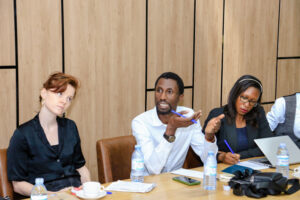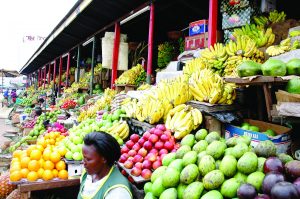The history of the Democratic Republic of the Congo (DRC), the 18th largest country in the world, is fraught with violence, conflict and exploitation. From the personal colony of King Leopold II of Belgium, to the dictator Joseph Mobutu’s personal piggy bank, to a country divided by a twenty-year civil war, the DRC has a history of division, conflict and bloodshed. As a result, refugees from the DRC have fled all over the world. In recent past, both Rwanda and Uganda have been accused of continued funding of various rebel groups against the new self-appointed ruler of the DRC. Various ethnic groups and militias throughout the country have continued to fight against each other. The DRC has become a battleground where various African nations and global players, from North to South, either directly or indirectly fight over resources and power.
Regional Security Complex Theory (RSCT) is a theory of International Relations espoused by Barry Buzan and Ole Waever, which identifies a regional security complex as a group of states whose primary national security concerns are so closely intertwined together that they cannot be extracted or addressed independently of each other. The theory views security interdependence as a critical factor in the creation of regionally based clusters. This article uses the RSCT framework to analyze DRC’s admission in the East African Community and its implications on security in the region.
DRC admission also brings with it major security problems. The eastern DRC is notoriously unstable and home to about 100 rebel groups. Recently, the Allied Democratic Forces (ADF), responsible for about 6 000 civilian deaths since 2013, has aligned with the Islamic State West Africa Province, drawn in new recruits from throughout East Africa and expanded its operational footprint in Uganda and Rwanda. This shows the indivisible nature of security and the fact that the EAC is already facing the ripple effects of the insecurity in the DRC in form of refugee crisis and recent terrorist attacks in the capital of Uganda attributed to the ADF rebels in eastern Congo.
RSCT posits that actors’ actions and motivations in the field of international security are heavily regional in character. This means that an actor’s security concerns are primarily generated in their immediate neighborhood. The security of each actor in a region interacts with the security of the other actors. Due to the way adjacency works there is often intense security interdependence within a Regional Security Complex. This assumption is true but undermined by relations between the DRC, Uganda and Rwanda which have been plagued by conflict and mistrust with much of the rebel group activities in the region being a by-product. Rwanda has long been accused of supporting M23 rebels in eastern DRC, allegations that arose again in relation to recent M23 activity. With the DRC now a member of the bloc, all states need to pursue regional peace and stability as their top priority and not the selfish interests of individuals.
RSCs and securitization also has the ability to analyze the international system using different sectors, that is, identifying military, political, societal, economic and environmental areas as the key spaces that interact to form security dynamics. Thus this move may be a make or break for the EAC: collaboration between its member states and a lasting solution to the conflict in eastern Congo which permits the DRC to fully integrate into the regional bloc would be a game changer of continental significance; but there is also the risk that squabbling over their individual interests could doom the mission and undermine the progress the EAC has made in recent years.
The illicit interests are in the DRC’s natural resources that Rwanda and Uganda have been accused of plundering for decades. In March the US Treasury sanctioned Belgian businessman Alain Goetz and his African Gold Refinery in Uganda, plus a network of companies, for ‘the illicit movement of gold valued at hundreds of millions of dollars per year’ from the DRC. It said this smuggling provides revenue to armed groups that threaten the peace, security, and stability of the DRC.
Regional security Complexes themselves are formed through strong patterns of amity and enmity as a consequence of securitization or desecuritization processes. While at this point anything that might bring peace to one of the most violent corners of the continent is welcomed, peace initiative efforts emanating from the EAC should genuinely serve the entire region, including the interests of the long-exploited and abused Congolese people.
In conclusion, Regional Security Complex theory cannot be relied on to fully explain the nature of the region’s security challenges, agency, statehood and inter-state relations, and the effects therein on regional security dynamics. The role of non-state actors and global players in destabilizing regional peace as the case is inside the DRC cannot be ignored, and for lasting solutions to be found, all the different players need to be engaged and persuaded into becoming collaborators for lasting peace and stability. Establishing and deploying a regional security force is not a viable option in the current circumstances where member states are still driven by conflicting individual interests.
By Patricia Namakula





